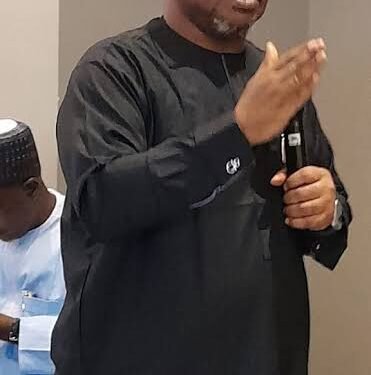By Seyi Babalola
Chief Executive Officer of Niger Delta Power Holding Company Limited (NDPHC), Chiedu Ugbo, said on Monday that the company’s cash flow is being negatively impacted by N190 billion in debt, transmission limitations, and other systemic issues.
Speaking to journalists at the NDPHC event: “Light Up Nigeria” project in Lagos, the power producing company stressed that it was focused on growing and lighting Nigeria while expressing hope in spite of the difficulties.
According to him, “Despite the foregoing achievements, NDPHC’s operations are hampered by a number of systemic challenges which have significantly affected its cash flow but which present good private investment opportunities.”
He revealed that the market’s enormous debt to NDPHC, totaling N190 billion, stems from unpaid invoices that date back to 2015, the year when TEM was proclaimed. This debt has affected our operations.
“Inadequate transmission and distribution (T&D) grid capacity to evacuate energy generated from the power plants” is one of the other issues he brought out.
He also said that the predicted T&D available capacity for 2022 is 5,500 MW. He emphasized that NDPHC is now allotted a maximum dispatch space of 975 MW during peak hours and 757 MW during off-peak hours, even if it was frequently, substantially and mechanically available.
According to him, the frequent start-up and shut-down orders to the plants, purportedly for frequency and load control to ensure system safety and reliability, actually increase turbine stress, cause more unplanned outages, and result in large maintenance costs. This makes evacuation limitations even worse.
Regarding transportation issues and gas availability, Ugbo said: “unavailability of sufficient volumes of gas to guarantee generation up to TCN-allocated evacuation capacity of 975MW let alone the full capacity of its power plants. Calabar is the only plant with full gas supply.
Plants in the the western axis require about 150MMSCF/day to meet TCN-allocated evacuation capacity of 535MW (peak). Gas supply to western axis power plants is further challenged by low pressure on NGIC gas pipelines –ELPS & Oben-Ajaokuta.
“Gas suppliers want a higher gas tariff beyond the industry approved gas tariff ($2.50 vs. $2.18).”
He revealed that the majority of the risks in the value chain are stored and forgotten by generation, emphasizing that risks related to non-FM Market/demand that are beyond of Gencos’ boundaries, such as availability and gas offtake concerns, remain with Gencos.
“Payment risks – in addition to lack of full payment of generation invoices, no availability and Gas ToP payments properly so called though some attempt in the contract activation of 2022.
“Also no payment for reduction in declared capacity due to transmission limitations and for several starts and stops in a day due to SO’s instructions. Typically free starts for baseload plants are limited to not exceeding 12 in a year (see NBET standard PPA).”
“Molecules should flow in equal velocity with risks (properly allocated across the chain) with liquidity flowing in opposite directions.”
He pointed out that rising gasoline and parts costs are a result of macroeconomic issues affecting foreign exchange-denominated expenses.
“It is obvious that a lot more investment is required in transmission and the government alone cannot do this,” he added in addressing these issues.
According to him, there is an immediate need to raise private finance; investigate Independent Transmission Projects (ITP), beginning with Genco investors.
“With NDPHC’s track record, this is possible and doable in the short term and intensifies bilateral contracts/franchising with last mile solutions,” he said.
He went on to say that by putting in place a program to make the most of its generation assets, it will be able to reliably provide qualifying consumers (maximum demand), discos, and outside project developers who aggregate load and supply bulk customers.
“To underscore the importance of this programme, it is directly led by NDPHC’s Chairman, Vice President Kashim Shettima.
“Approach is to focus more on sale to bulk purchasers and developers that aggregate load because of the volume of power that can be sold on each such project (subject to the proper payment security being in place)
“The initiative offers a sure path to being able to sell a significant part of NDPHC’s commercially stranded capacity to light up businesses and homes. The goal is to have more than 97 percent availability,” he added.
According to him: “To reasonably resolve the challenges to power plants’ operations and increase electricity supply to homes and businesses, NDPHC’s Light-up Nigeria initiative is to explore not only the opportunities under the Eligible Customer Regulations and Electricity Act 2023 but also bilateral power sales in collaboration with Discos and other bulk purchasers under trading arrangements that will ensure that investment is mobilized for end-to-end solutions that will guarantee that electricity is delivered to customers and NDPHC is paid for the electricity generated.”






